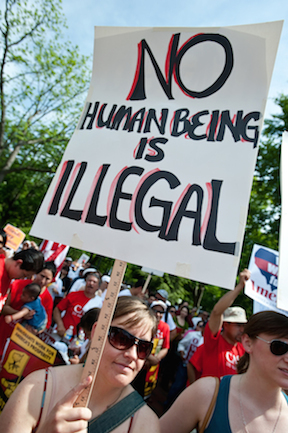Uniting for Ukraine
On April 21, 2022, the United States announced a key step toward fulfilling President Biden’s commitment to welcome Ukrainians fleeing Russia’s invasion. Uniting for Ukraine provides a pathway for Ukrainian citizens and their immediate family members who are outside the United States to come to the United States and stay temporarily in a two-year period of parole. Ukrainians participating in Uniting for Ukraine must have a supporter in the United States who agrees to provide them with financial support for the duration of their stay in the United States.
The first step in the Uniting for Ukraine process is for the U.S.-based supporter to file a Form I-134, Declaration of Financial Support, with USCIS. The U.S. government will then vet the supporter to ensure that they are able to financially support the individual whom they agree to support. A supporter may be any individual who holds lawful status in the United States or is a parolee or beneficiary of deferred action or Deferred Enforced Departure (DED) who has passed security and background vetting and demonstrated sufficient financial resources to receive, maintain, and supports the individuals whom they commit to support for the duration of their stay in the United States.
Examples of individuals who meet the supporter requirement include U.S. citizens, Lawful permanent residents, lawful temporary residents, and conditional permanent residents; Nonimmigrants in lawful status (that is, who maintain the nonimmigrant status and have not violated any of the terms or conditions of the nonimmigrant status); Asylees, refugees, and parolees; TPS holders; and Beneficiaries of deferred action (including DACA) or Deferred Enforced Departure.
The supporter may sponsor any Ukrainian citizen (or their non-Ukrainian immediate family member) who is outside the United States and who may be considered for parole under Uniting for Ukraine.
Immediate family members in this process include: the spouse or common-law partner of a Ukrainian citizen; and their unmarried children under the age of 21. NOTE: If a child is under 18, they must be traveling with a parent or legal guardian in order to use this process.
For more information, please contact Hargis Law Firm PLLC, or visit DHS.gov.
